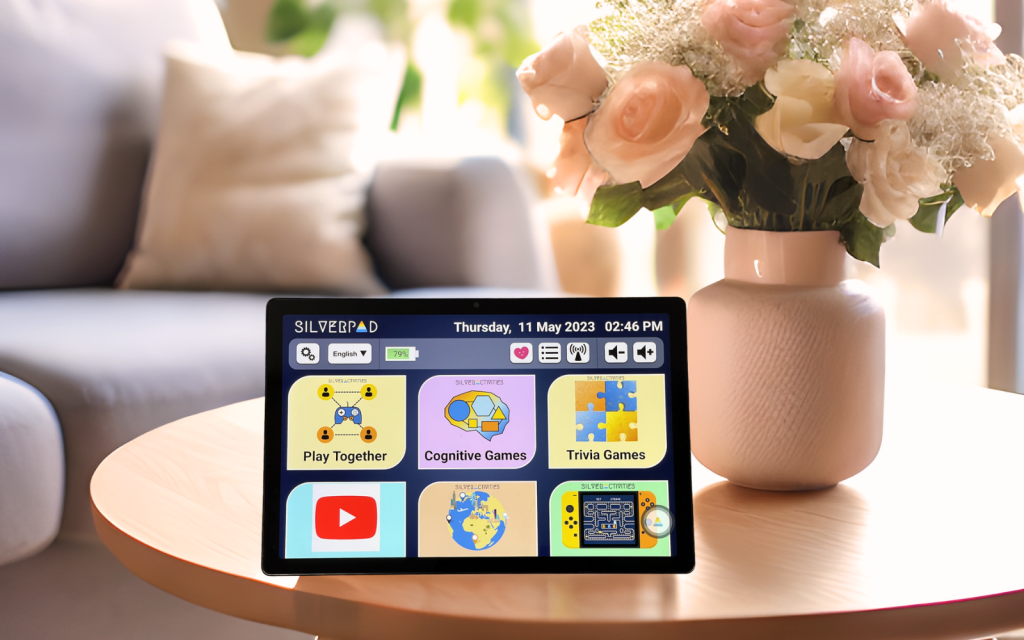When our cherished ones receive a dementia diagnosis, we can feel as though we’ve been gently nudged onto a path that feels undeniably foreign and intimidating. It’s a journey filled with a profound blend of emotions, a unique medley of love, fear, uncertainty, and courage. To help you navigate this uncharted territory, we’ve lovingly collated a handful of practical, heartfelt tips that we hope will provide solace and guidance as you provide care to your loved one living with dementia.
Educate Yourself About Dementia
First and foremost, arm yourself with knowledge. Understand what dementia is – a general term for loss of memory, language, problem-solving, and other cognitive abilities that interfere with daily life. Alzheimer’s disease is the most common type of dementia, but there are others like vascular dementia, Lewy body dementia, and frontotemporal dementia. Knowing what you’re dealing with will make the journey a little less overwhelming.
Seek Support and Connect with Others
The weight of dementia care can be incredibly heavy. Don’t try to carry it alone. Reach out to local support groups, online communities, and dementia-focused organizations. The shared experiences and advice from individuals who are dealing with the same issues can be both comforting and instructive.
Establish a Daily Routine
People with dementia often feel more comfortable and secure when they have a consistent routine. Establishing regular meal times, medication schedules, physical activities, and bedtimes can help reduce agitation and improve sleep quality.
Foster Communication
As dementia progresses, communication can become challenging. Always speak calmly, clearly, and in short, simple sentences. Patience is key here. Avoid arguing or trying to correct them when they are confused or mistaken. It’s more important to connect with them emotionally than to insist on factual accuracy.
Make Home Safety a Priority
Dementia may increase the risk of accidents in the home due to confusion or forgetfulness. Make necessary modifications like adding safety locks, removing tripping hazards, and installing good lighting. You may also want to consider wearable safety devices that can alert you if your loved one wanders off.
Prioritize Nutrition and Hydration
People with dementia might forget to eat or drink, lose interest in food, or have trouble with chewing and swallowing. Regular, balanced meals are crucial for their health. Experiment with different food types and textures if they’re resistant. Keeping them hydrated is equally important, so encourage fluid intake throughout the day.
Keep Them Active
Regular physical activity can have many benefits for people with dementia, including better mood, less anxiety, and improved sleep. Activities should be tailored to their ability level – it could be as simple as a walk in the park or seated stretching exercises.
Practice Patience and Compassion
Remember, dementia is not a choice. It is a disease that changes a person’s ability to remember, think clearly, or manage emotions. Patience and compassion go a long way in making your loved one feel safe and understood. It’s okay to feel frustrated sometimes, but always take a step back, breathe, and remember the love you have for them.
Look After Yourself Too
Do not neglect your own needs. Caregiver burnout is real and can lead to significant health problems. Eat healthy, get regular exercise, maintain social connections, and take breaks when needed. Remember that you’re only human, and it’s okay to ask for help when you need it.
Celebrate the Good Moments
One of the most essential tips I can give is to cherish the good moments, no matter how small. These might include a shared laugh, a remembered story, or simply a peaceful afternoon. Dementia has a way of bringing our focus to the present moment, and in those moments, we often find unexpected joy.
Engage Their Minds
Find suitable activities that stimulate their minds but don’t frustrate them. This could be a simple puzzle, a favorite old movie, or even music. You’ll find that music, particularly songs from their youth, can often reach parts of their memory that conversation can’t.
Make Use of Respite Care
Every caregiver needs a break occasionally, and this is where respite care comes in. It can be provided at home by a professional, at a day-care center, or even in a residential care setting. This short-term relief allows you to recharge and take care of your own needs.
Build a Medical Team You Trust
It’s important to have a good relationship with your loved one’s healthcare providers. Regular check-ups are vital to monitor the progression of the disease and manage any other health conditions your loved one may have.
Legal and Financial Planning
Addressing financial and legal issues can be daunting but is crucial. Discussing these matters early on can help avoid confusion and potential conflict later. Establishing power of attorney, creating a will, and looking into long-term care options are just a few things to consider.
Utilize Technology
Various tech tools are designed to assist caregivers and people living with dementia. From reminder apps for medication to GPS tracking devices for those who may wander, these tools can help improve safety and manage daily tasks.
Caring for a loved one with dementia is not an easy task. However, remember that every moment spent caring for your loved one is a testament to your strength and love. It’s okay to feel overwhelmed, to need a break, and to seek support. You’re not alone on this journey, and the empathy, patience, and resilience you are cultivating are invaluable.

In your journey as a caregiver for a loved one, it’s essential to explore various resources and tools that can help enhance their overall well-being. One such valuable product is SilverPad by SilverActivities, a senior-friendly tablet with large buttons and text designed specifically for seniors. It offers a range of engaging games and activities that stimulate cognitive functions, providing mental stimulation and enjoyment for seniors. Trusted by many senior care institutions and therapists, SilverPad has proven to be an effective tool for promoting cognitive health and maintaining a sense of engagement and connection.

